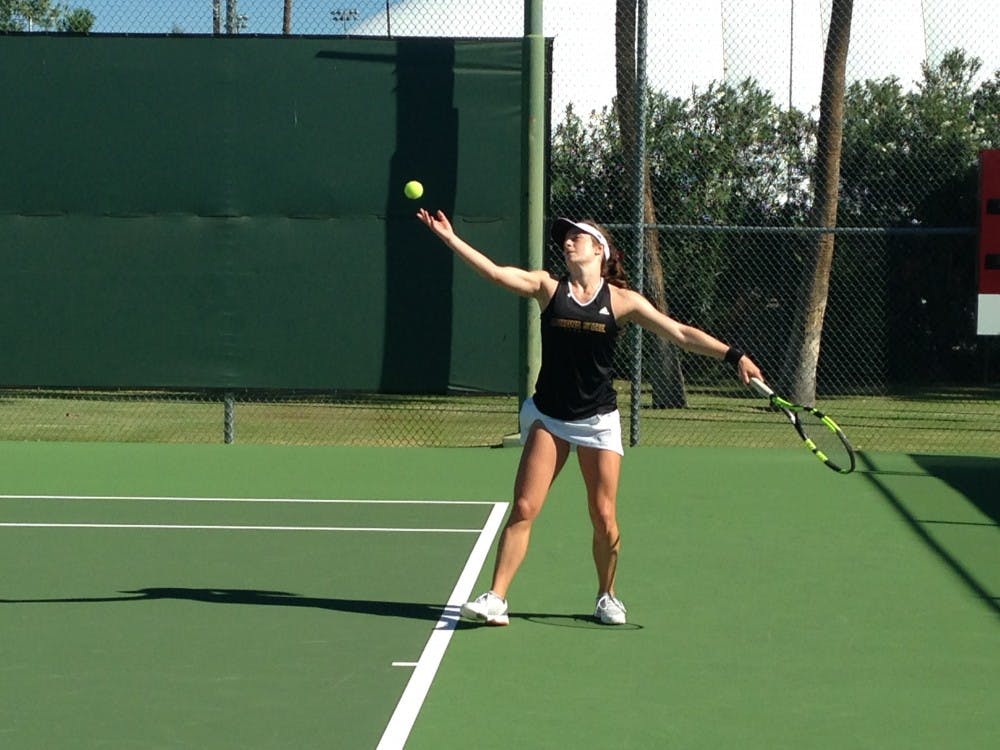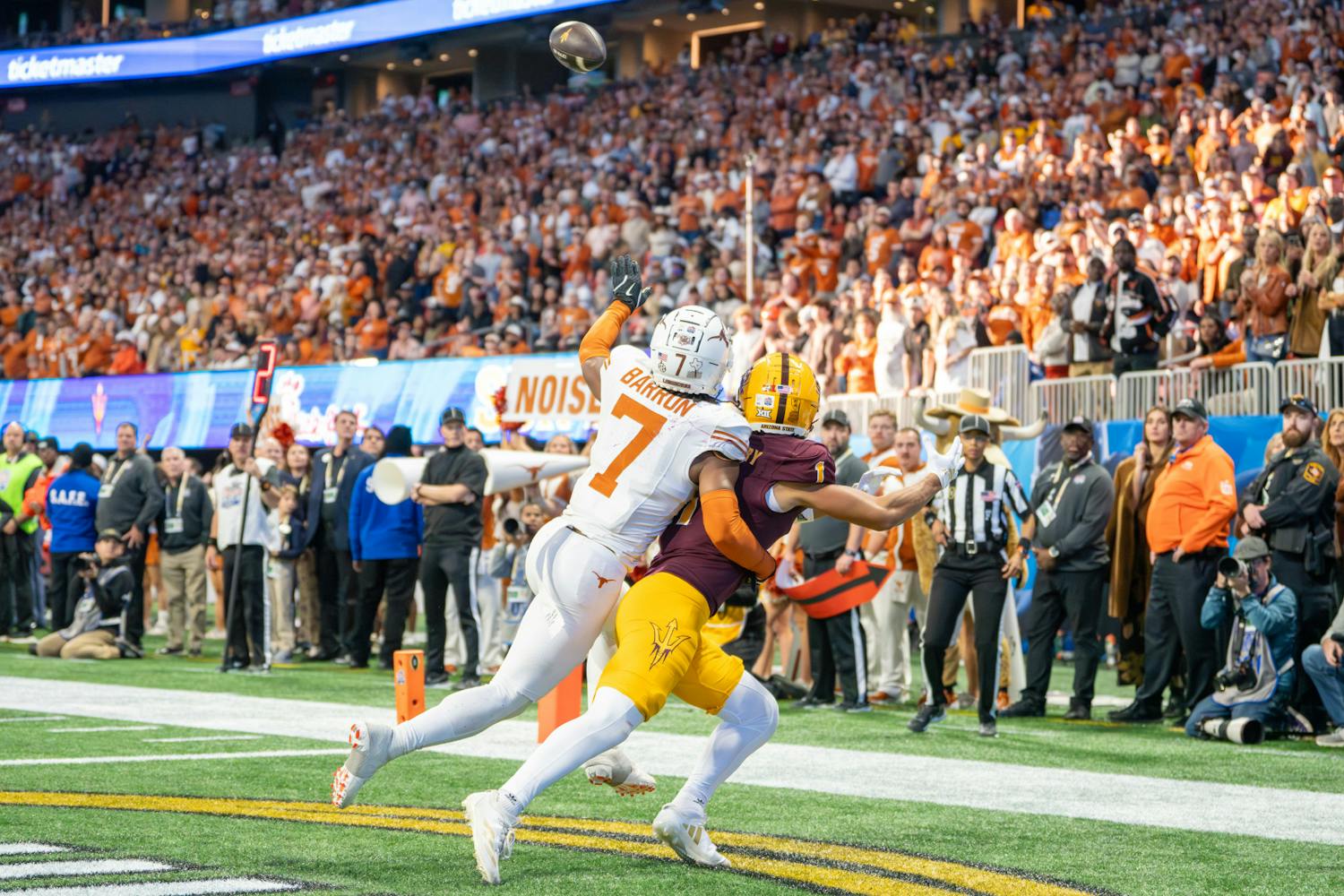ASU women’s tennis senior Alexandra Osborne knows what success in doubles means.
Last season, Osborne and her partner, then-senior Ebony Panoho, captured the Sun Devils’ first Pac-12 doubles title in program history.
Congratulations to Sun Devils Ebony Panoho and Alex Osborne! #PAC12CHAMPIONS #FORKSUP pic.twitter.com/VS7Gk2gg5h
— Sun Devil Tennis (@sundeviltennis) April 24, 2016
Earlier this season, head coach Sheila McInerney wanted a more aggressive approach in doubles, which included putting the first ball in play more often.
“In college, you only play one set so it is a race to the finish,” McInerney said. “You have to be able to do the basics well, first serves and first returns. There is not an elaborate game plan, you just do what you do best and hope it works out. Sometimes you might only have 20-30 minutes to play a set of doubles.”
Osborne understands this more than anybody. This mindset has helped fuel her success, and McInerney has always respected the way Osborne approaches a doubles match.
Learning a new partner’s style — junior transfer Nicole Fossa-Huergo — and adjusting on the fly comes with the territory for Osborne, but the strategy rarely changes.
— Joe Jacquez (@joejacquezaz) November 4, 2016
“A high percentage of first serves is really important, especially in doubles, and is something we really strive to do,” Osborne said.
With less of the court to work with and a teammate near the net, a powerful first serve helps the team dictate the point.
Holding serve early in a match creates momentum in doubles, and often the returner becomes predictable.
“Returning in doubles can be tricky just because you have less of the court to work with as there is a net player involved,” Osborne said. “Making a first serve puts even more pressure on them, as well as setting up your partner to really look to cross at the net to get that volley.”
Setting up each other with first serves has been a critical part of junior Kelley Anderson and freshman Savannah Slaysman’s success as a new pair.
More than anything else, it allows them to dictate their service games.
“Kelly has a really big serve, so she will set me up to hit," Slaysman said. "We always have a plan for each point.”
Often at the pro level, in both singles and doubles, the best returners win major tournaments and ascend to the top. On the Women's Tennis Association, Serena Williams (USA), Victoria Azarenka (BLR) and Karolina Pliskova (CZE) win a high percentage of returns as some of the top players on tour.
Osborne believes this returning skill is important for tennis players of all skill levels. During practice, she spends a lot of time working on “return and come in behind the ball drills.”
“We return the ball and look to come into the net after it,” Osborne said. This forces us to use our momentum behind our returns, enabling us to hit a big ball through the middle of the court so that our partner can more easily cross off it at the net.”
Osborne believes greater use of the ball machine during practice has helped everybody develop repetition on returns and create confidence.
The break in between the fall preseason and the spring campaign allows Osborne and her teammates to assess and refine their arsenal, including the all-important serve.
“Doing basket serves, but with a purpose of hitting our targets,” Osborne said. “Individually coming out and doing serves by ourselves to keep ourselves accountable is something we have all been doing.”
Getting back to the basics helped all four doubles pairs perform well at the ASU Thunderbird Invitational.
With the regular season on the horizon, McInerney hopes improved chemistry and tournament experience shows up when it matters most against elite competition.
Related Links:
ASU women's tennis might have found their next distinguished doubles pair
With a louder voice on the court, sophomore Sammi Hampton takes on larger role
Reach the reporter at jpjacqu1@asu.edu or follow @joejacquezaz on Twitter.
Like State Press Sports on Facebook and follow @statepresssport on Twitter.




